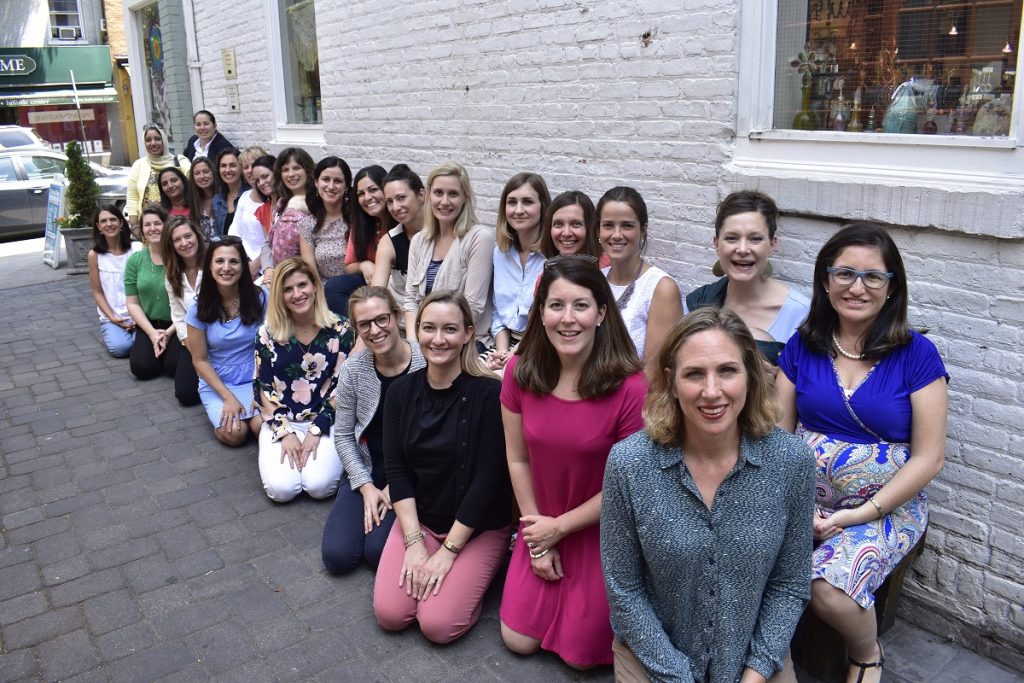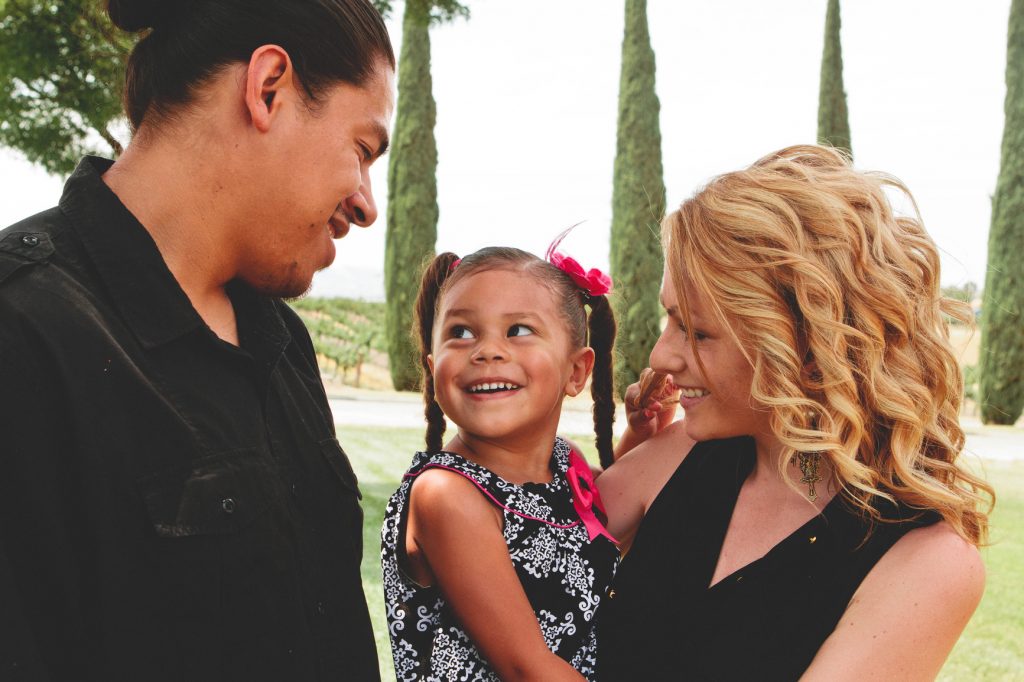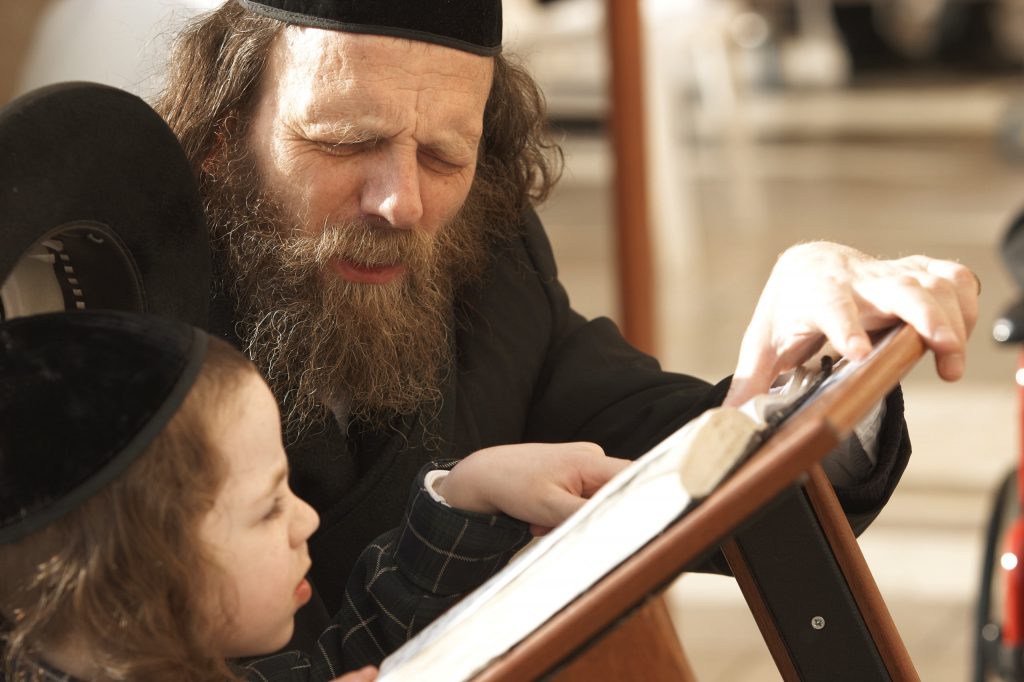CanaVox is a cheerful marriage movement that hosts reading groups for friends who support the historic understanding of marriage. We bring people face-to-face to engage in the art of conversation and explore the various issues affecting our marriage culture in a thoughtful reading group setting, free from the hostilities often found in today’s public discourse.
Begun in 2013 by a small group of mothers in contact with the Witherspoon Institute, today CanaVox has run reading groups in twenty-nine US states and twenty countries around the world. We are Christians, Muslims, and Jews united in a common set of natural law values. You can check out our new website here, and our three-minute promo video here.
Below we explain the seven values we cheer for—and we invite you to cheer for them too.
Start your day with Public Discourse
Sign up and get our daily essays sent straight to your inbox.1. Marriage is a comprehensive, permanent, and exclusive union between one man and one woman.
Marriage is a comprehensive union of persons, a union of hearts, minds, and bodies. In marriage, spouses achieve true organic bodily union, a union only possible between man and woman. Because marriage unites husband and wife at all the basic levels of their person in a uniquely comprehensive way (heart, mind, and body), it is different in kind and not just in degree from all other types of human relationship. The comprehensive structure of marriage demands a total commitment from the spouses, that they be faithful to each other in an exclusive and permanent bond.
Marriage is beautiful and good in and of itself. However, marriage is also tremendously important for society, because organic bodily union often produces children. Marriage allows mothers and fathers to give their children the promise of a stable and lifelong family bond, which children need to flourish.
Cheering for faithful marriages requires that we acknowledge the real challenges that exist to a strong union. Let’s be frank: all marriages struggle in some way! Some of us have to work at being emotionally faithful, others at being sexually faithful. Some grapple with workaholism or alcoholism, with financial stress or cultural or religious differences; others face substance addictions or other mental or physical illnesses.
All couples face challenges—often for many years—but these hardships are not a reason to abandon our marriages or the ideal of permanence. Rather, by working through obstacles together, couples have the opportunity to move toward greater self-giving, a more powerful way of love. When they show this unconditional love for each other, they model that sacrificial love for their children. This creates mature, confident children who can turn around and show that respect and compassion toward others in society, generating a positive ripple effect.
2. Every child has a right to a mother and a father; no one has a right to a child.
Mothers and fathers provide unique gifts to their children. Each sex contributes in astonishing ways to the healthy psychosocial development of a child. Therefore, the ideal family structure for children is the intact, married, biological mother and father family. We know this ideal is not always attainable, but we cheer for those who strive to meet it. We take a firm stand against same-sex civil marriage, which, despite good intentions, enshrines in law the idea that children don’t need both a mother and a father, an idea that sends the wrong message to society and entails negative outcomes for children.
We also cheer for the following children’s rights:
1. The right to life from conception until natural death, regardless of the circumstances of conception, sex, or family situation.
2. The right to be treated as a person, not as a commodity to be bought or sold. Sometimes adults long so deeply for a child that they come to believe they are owed a child. However, children are a blessing and a privilege, not something owed to us adults. As adults, we must be careful not to seek fulfillment through a child, but rather adjust our desires to meet the objective needs of children. This allows us to treat children as unique individuals, not as instruments of our own dreams or pursuits, to be bought or (have their genetic material) sold according to our purposes.
3. The right to modesty and the right not to be subjected to sexual abuse, sexual images, or offensive sexual teachings. Adults must be the first protectors of the sexual integrity of children, who—not having yet undergone sexual development or achieved sexual maturity—are harmed in myriad physical and psychological ways by these things.
4. The right to be raised according to one’s biological sex and corresponding gender. Boys and girls should be taught to celebrate the unique and fundamental gifts of their biological sex. Gender is something anchored by our biology, not something wholly plastic that can be changed. If there is a disconnect between mind and body, the child needs special support, patience, and love to help him or her better understand and accept the wonder of his or her sex.
3. Family kinship bonds between children, parents, grandparents, and extended family should be protected and preserved.
Kinship regards the biological ties we have to the ancestral line that led to our existence. These ties provide roots to our identity by helping us to understand where we came from. Therefore, it matters very much how children enter this world and experience their ancestry, and we cheer for all those who recognize and protect kinship bonds.
Sometimes a child loses one or more parents due to tragic circumstances. We admire adoptive and foster parents who seek to remedy broken kinship bonds and open their homes to these children with generosity and care, hoping to give the child a second chance at a loving family experience without deliberately seeking to erase or dismiss the child’s biological history.
Other forms of parenting are associated with direct assaults on kinship. Third party reproduction, which uses a third parent’s eggs, womb, or semen to create a child, involves the explicit intention and act of alienating a child from a biological parent, often making it difficult or impossible for the child to know and be known by them.
We cheer for those who strive to preserve and honor kinship bonds, knowing how important these bonds are to all humanity, but especially to the world’s children.
4. Every person has a profound need to be appreciated, known, and loved in the context of authentic friendship.
Authentic friendship is a relationship of mutual appreciation, in which people desire each other’s good and value each other’s uniqueness. Friendships are born around common pursuits and loves, but they reach their highest expression when friends desire each other’s true good as a part of their own good and happiness.
Because it does not have organic bodily union as one of its aims, authentic friendship is characterized by philia love rather that romantic or sexual love. Authentic friendship is real, valuable, and intimate—a union of hearts and minds, which gives profound happiness. Every one of us needs this experience of friendship to fend off loneliness and to flourish.
Recognizing that marriage is a distinct type of comprehensive union with its own unique form of friendship doesn’t denigrate true friendship outside of marriage, but instead provides the space and context that these friendships need to flourish. By rejecting the redefinition of marriage as just one’s most intense emotional union, we affirm that non-marital friendships have their own distinctive features and types of intimacy, and we counter the confusing modern meme that all emotional intimacy can or should be sexual.
We realize that authentic friendship is easier said than done! We live in an age when technology, the frenetic pace of life, and widespread relationship illiteracy make it challenging to cultivate true friendship. We cheer for those who seek authentic friendship, resist sexualizing their friendships, and seek sexual integrity as their path for joy. We applaud all those on the dating scene who wait for marriage to express their total, comprehensive commitment. We come together to share support, solidarity, and encouragement to help us all grow in true friendship.
5. Every person possesses a unique dignity and is worthy of respect, regardless of sex, age, ethnicity, sexual feelings, race, educational level, or religious or political ideas.
CanaVox cheers for those who seek to engage in civil and meaningful conversations that preserve the dignity of all involved, even in the midst of intense disagreements, and we strive to add our own positive voice to the public sphere.
Too often, contemporary debates in the public sphere lead to the dehumanizing of people who hold different opinions or pose inconveniences. Some argue that fetuses are not people. Others assert that people of faith are unworthy of respect, or that persons with same-sex attraction are less dignified, or that those who experimented with a promiscuous lifestyle lack dignity, or that minority groups are a threat.
We especially reach out to those who have suffered from our broken sex culture, and we support them as they seek a second chance at sexual integrity. We value the dignity of all the vulnerable among us: the unborn, children, the elderly, racial minorities, religious and sexual minorities, and the poor. The only authentic protection of any people in a given society is the protection of all.
6. Parents have a right and a responsibility to direct the education of their children.
We cheer for the creative and careful ways in which parents organize their family’s life and guide their children toward paths of intellectual, moral, and sexual integrity. Government and social institutions should assist parents in their educational task and never usurp parents’ primary role, especially in sensitive areas pertaining to sexuality, marriage, and family.
Unfortunately, schools, educators, and the government sometimes forget that they exist to assist parents and not to replace or exclude them. Parents today face governments, caregivers, and providers that may seek, through various means—but especially through sex-ed programs—to normalize and promote forms of sexual behavior that violate the consciences of many around the world.
Barring clear and extreme cases of child abuse, governments must give parents the benefit of the doubt when it comes to the care and education of their children. We support parents in their invaluable role, and we recognize that the moral and economic health of towns, nations, and society rests on the all-important work of mothering and fathering.
7. Every person has a right to freedom of conscience, thought, and religion, which includes the freedom to manifest one’s religion or beliefs in a public or private way, so long as these beliefs and practices do not harm others.
We cheer for people who understand the positive role of religion in ordinary life and the importance of faith to the common good, whatever their professed creed.
Religious liberty is under attack over questions pertaining to life, marriage, and parental education, among other issues. We work to help inform our audiences about threats to religious liberty in law and culture today. We also highlight the meaningful ways in which citizens live their faith and moral traditions beyond the weekly worship context, so as to raise awareness that freedom of religion is more than just freedom to worship.
We believe that a fundamental feature of human existence is the search for truth. This inevitably involves a degree of error, but persons must enjoy the freedom to be mistaken in the cultivation of their own consciences, so long as their beliefs do not cause palpable harm to others.
In a nutshell:
Our seven cheer points relate to seven different relationships, all of which flow from and shape our marriage culture.
1) The relationship between husband and wife
2) The relationship between children and adults
3) The relationship between children and their biological family
4) The relationship between adults of the same sex
5) The relationship between all persons in civil society
6) The relationship between the government, parents, and children
7) The relationship between the government and people of faith
We seek healing and right order in these relationships, mindful that a strong marriage culture depends on the cooperation of all of these relationships to support the union of husband and wife, together for life.



















